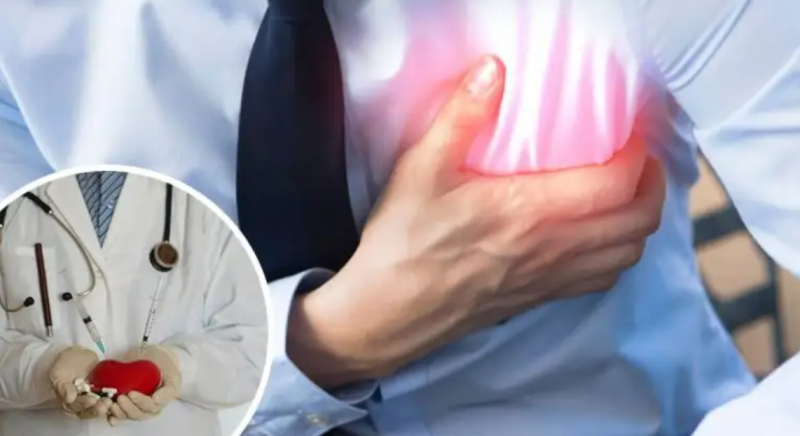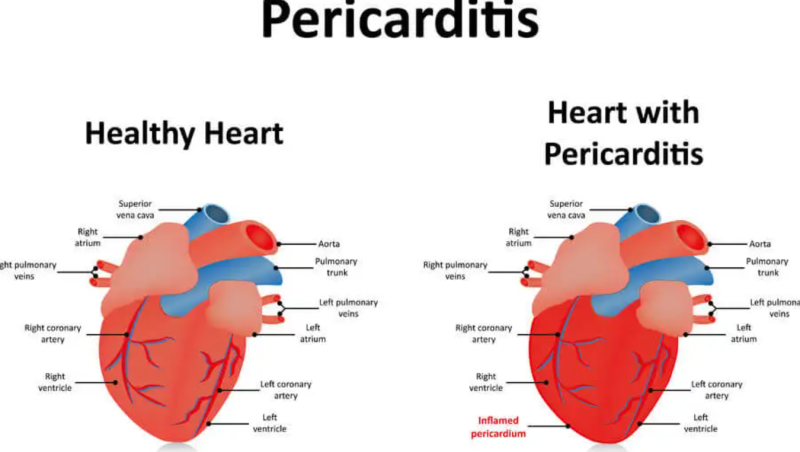
Occasionally, we may have suffered punctures in the heart that have caused us great concern; after all, it is a vital organ in our lives. Today we will discover why these inconveniences occur and what they may alert us to.
The heart is the most complex working organ in the human body. It beats approximately 115,000 times a day, 80 times a minute, and 42 million times a year, even when we’re resting. It is responsible for pumping clean blood, rich in oxygen and diverse nutrients, to every tissue in our body.
Despite how perfect the functioning of the cardiovascular system may sound, it is typical for a wide variety of things to occur that affect its functioning or indicate some irregularity in it. Among these are punctures in the heart.
Contents
Stress, anxiety, and punctures
Punctures are an unpleasant sensation that, as the name implies, is experienced as a sharp pain, like being pricked with a needle. They can appear anytime and do not always present with other symptoms. As for the causes, these can be very varied; two of them are stress and anxiety.
Cristina Luna, a member of the Madrid Association of Agoraphobia ( AMADAG ), explains: “Our body has memory and accumulates tension; this is why we can also suffer those pricks in the chest when we are in a calm moment.”
Suppose the doctor tells us that the cause of the punctures is anxiety or chronic stress. In that case, it is best to seek psychological support and improve lifestyle habits to alleviate tension and gradually Learn to manage negative thoughts and emotions. This study supports this carried out by the University of Basel (Switzerland).
In case of experiencing punctures due to anxiety or stress, the following can be put into practice:
- Take a seat, take a deep breath, and focus on your inhalation and exhalation to gradually recover your calm.
- Perform muscle relaxation exercises (to release accumulated tension gradually).
Other possible causes
Punctures in the heart can also be a symptom that manifests itself as a consequence of other issues, such as:
hyperactivity
At the same time, when our heart rate is elevated, we tend to breathe more intensely, which can cause heart punctures.
This can happen if we are doing physical exercise or doing physical overexertion. To alleviate the symptoms, it is best to slow down.
arrhythmias
Arrhythmias imply an alteration in the heart rhythm, making it higher or lower than usual, and can even cause strong punctures.
Discover: What you did not know about cardiac arrhythmias
pericarditis
Pericarditis is a disease caused by inflammation of the pericardium. This is the layer that covers the heart and is in charge of:
- Store the fluid that lubricates and reduces friction on the heart.
- Limit its movement.
- Distributes the pressure of the heart.
- It isolates the heart, thus avoiding possible infections.
According to this study by the Hospital General Universitari Vall d’Hebron, it can present episodes of punctures in the thoracic area.

myocardial infarction
The myocardium is the heart’s muscle tissue responsible for pumping blood through the circulatory system by contraction.
The failure or infarction of this tissue can imply strong punctures because a part of the heart stops receiving the blood it requires for its operation, which would cause intermittent solid pain in the thoracic area, according to the information extracted from the Spanish Heart Foundation.
When to go to the doctor?
In case of presenting these discomforts regularly, it is recommended that you go to the family doctor for an evaluation. The specialist will be in charge of checking the health of your heart through an electrocardiogram (and other tests) and, if necessary, will prescribe the most appropriate treatment for your case.